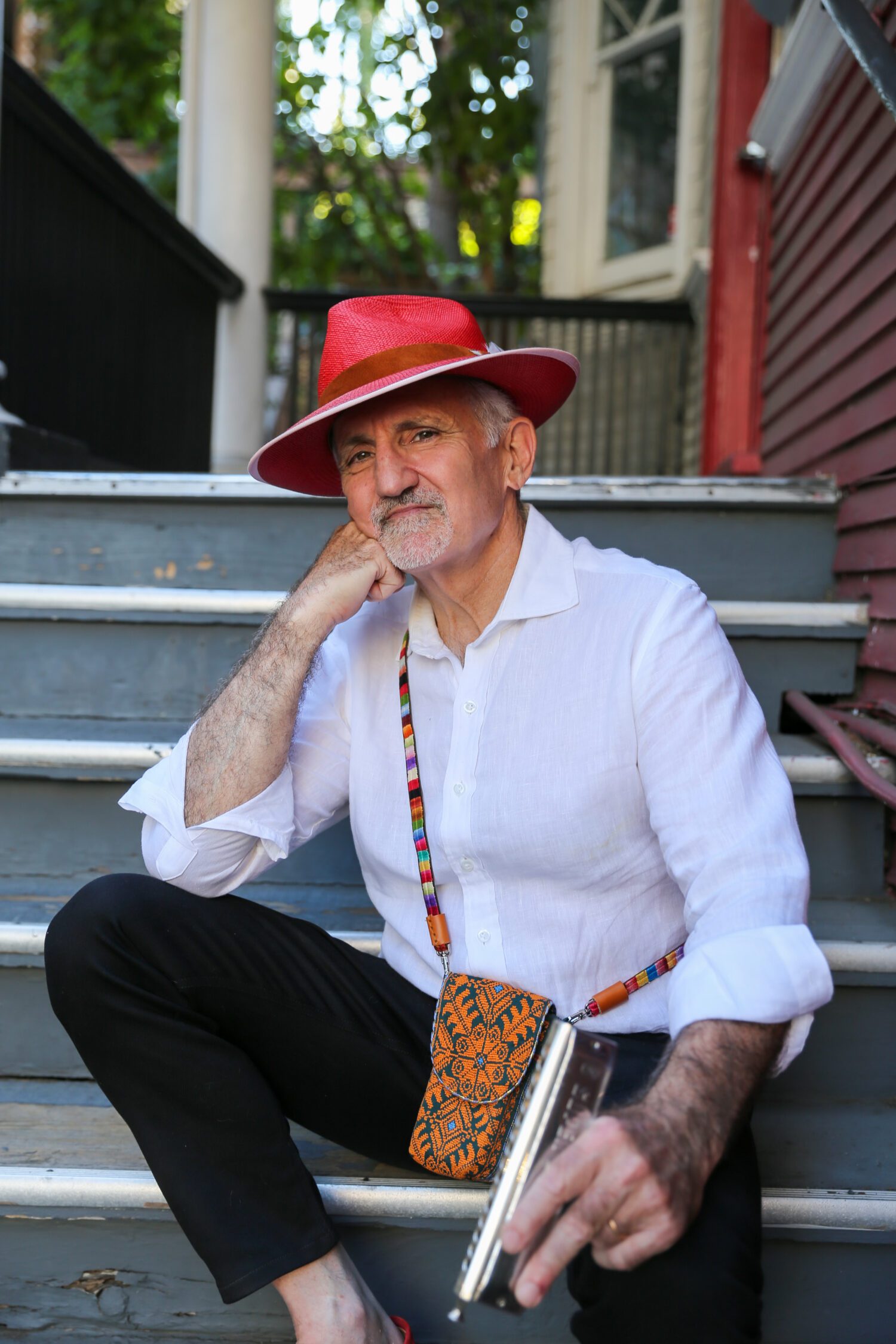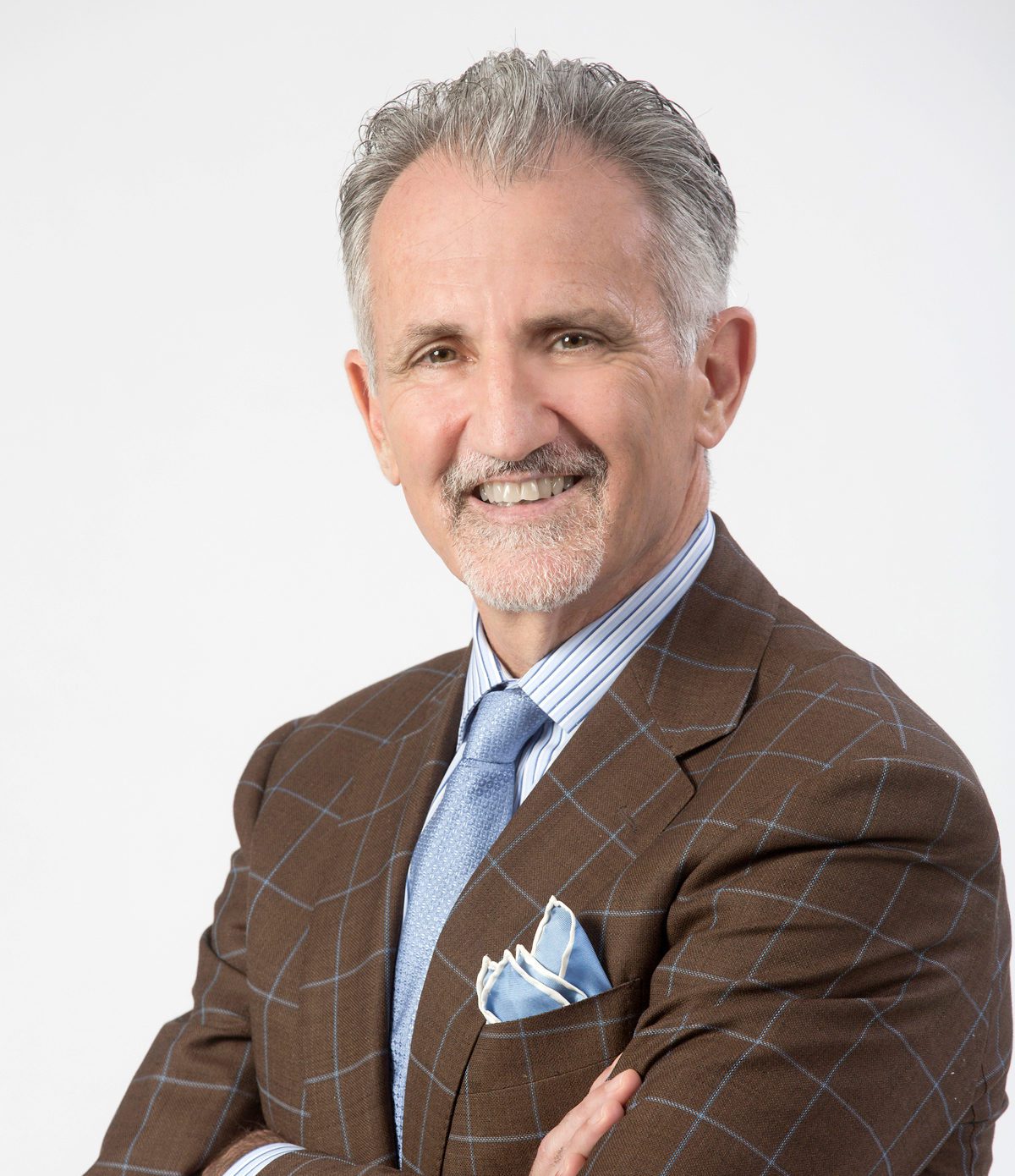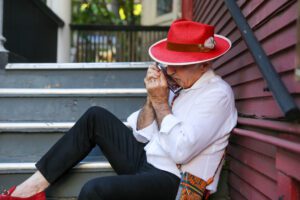Longtime UC Law SF Professor Finds Success as Blues Musician

Professor George Bisharat has been recognized with numerous award nominations for the original blues songs that he writes and perform under his stage name, “Big Harp George.
For over 30 years, Professor George Bisharat has earned high praise for helping law students understand complex issues of criminal justice. But in recent years, he’s been lauded for a different reason: his talent as a blues harmonica player, singer, and songwriter.
Known by his stage name “Big Harp George,” Bisharat’s music has attracted glowing reviews and two nominations for “Best New Blues Artist” for his 2014 debut album, “Chromaticism.” This year, he was recognized with a nomination for “Harmonica Player of the Year” by Blues Blast Magazine.

Professor George Brisharat has taught courses at UC Law San Francisco for more than 30 years.
Before reinventing himself as a professional musician, Bisharat studied law, anthropology, and Middle East studies at Harvard. After working as a trial lawyer for the San Francisco Public Defender’s Office, he joined the UC Law SF faculty in 1991 and taught courses including the Criminal Practice Clinic, Criminal Procedure, Islamic Law, and Law and Social Anthropology. Since taking emeritus status in 2015, he has repeatedly come back to teach classes at UC Law SF.
As a professor, Bisharat said he strives to teach more than just theory and doctrine. He also explains how the law works in real-life situations, including how factors like race and socioeconomic status can play a role in interactions with police officers.
“If students have a better understanding of the role and limitations of doctrine and the other factors that determine legal outcomes, the better able they will be to serve their clients’ interests in those complex circumstances,” he said.
Bisharat said he tries to bring unique perspectives to both his teaching and music. With a strong interest in social issues, he often injects political and social commentary into his songs. In a 2020 tune called “Don’t Talk,” he sings about the wisdom behind Miranda warnings that inform suspects of their rights to remain silent.

Professor George Bisharat uses a larger chromatic harmonica not usually heard in blues music, which is where he gets his stage name, “Big Harp George.”
One thing that makes Bisharat’s music stand out is his use of the chromatic harmonica, a difficult-to-master and larger instrument compared to the diatonic harmonica most often heard in blues music. “To my knowledge, I’m one of very few blues musicians ever to make the chromatic harmonica my main instrument,” he said.
Music was in Bisharat’s veins from an early age. He started playing harmonica at age 14 and was singing in a band by age 11. He stayed passionate about music through adulthood but didn’t seriously consider making it a profession until late 2011 and early 2012. That’s when he earned a top-three slot in a local songwriting competition, performed his original music at a jazz club in Oakland, and received positive encouragement from blues legends like Charles “Little Charlie” Baty and Curtis Salgado.
His fifth album, “Cut My Spirit Loose” was released in March, and he plans to release a new album of original Christmas songs later this year.
When he’s not writing and recording songs, Bisharat still does research, writing, and public speaking on important legal, social, and geopolitical issues. But the emeritus professor said he is thankful to have found success as a celebrated blues musician later in life.
“Having a dream unfilled for so long and getting to fulfill it, I feel incredibly lucky and blessed,” he said.
To cast a vote for “Harmonica Player of the Year,” visit the Blues Blast Magazine website and sign up for a free online subscription (which can be canceled any time after voting). Voting is open from July 1 to Aug. 18.